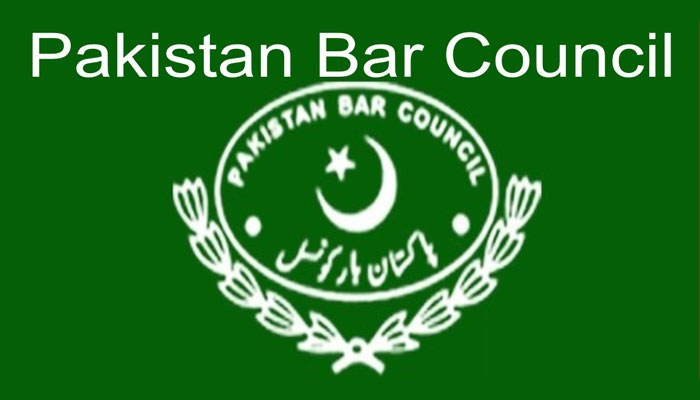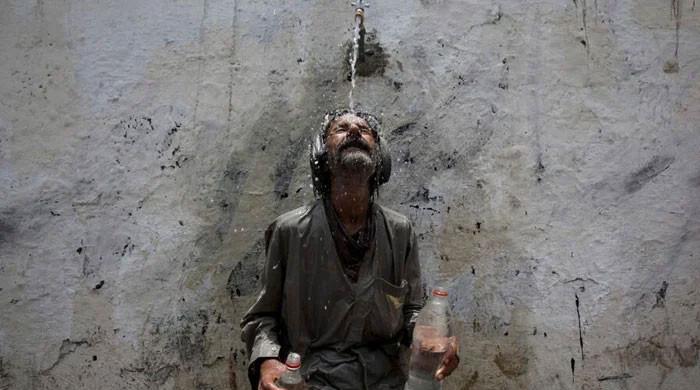PBC terms SC verdict on Paragon Housing Society case a 'historic judgement'
The judgment touched upon 'the importance of human dignity, the significance of fundamental rights of citizens and respect for the rule of law'
July 23, 2020

ISLAMABAD: The Pakistan Bar Council (PBC) has hailed the decision given by the Supreme Court in the Paragon Housing Society case, terming it a “historic” judgment.
The apex court had on Monday issued its detailed verdict on a bail petition filed by PML-N leaders Khawaja Saad Rafique and Khawaja Salman Rafique in the housing society case, highlighting severe lapses in due process and legal procedure by the National Accountability Bureau (NAB).
In the detailed, 87-page ruling penned by Justice Maqbool Baqar, the court highlighted the definition and purpose of bail as well as due process in criminal cases.
In a statement, PBC Vice-Chairperson Abid Saqi said: "The historic judgment, emphatically touching upon the importance of human dignity, the significance of fundamental rights of citizens and respect for the rule of law and supremacy of the Constitution, while dispensing justice, will not only always be a source of strength for the independent judiciary but would also provide guidance to judges as well as members of the bar."
The vice-chair added that the Supreme Court's findings and remarks in its verdict against the NAB reflected the anti-graft body's bias in the handling of cases to utter disregard of basic principles of the dispensation of justice and fundamental rights guaranteed by the Constitution.
"The handling of cases by NAB, over the years, for political victimisation just to please the Government, has lowered down the image of the antigraft body which, in fact, has become a tool for arm twisting of political opponents of Government of the day,” he noted.
The Bar leaders deeply praised the judgment, saying it truly reflected the ground realities and real problems of the people on account of rapidly deteriorating performance of different state institutions, according to the statement.
They also called upon the government, as well as all state institutions, to act in accordance with dictates of the judgment and uphold the principles and parameters as laid down in the Constitution to ensure "fair play, equity and easy access to justice which is the only way for good governance and providing true justice to the people coupled with their sense of security and safety”.
SC slams NAB's 'utter disregard for law'
The Supreme Court's verdict in the Paragon Housing Society case has been hailed by the opposition parties and lawyers' bodies.
Justice Maqbool Baqar, who authored the verdict, slammed the anti graft body over its handling of cases and 'utter disregard for law'.
"In bail applications, generally, it has been laid down from the earliest times that the object of bail is to secure the appearance of the accused person at trail by reasonable amount of bail. The object of bail is neither punitive nor preventative. Deprivation of liberty must be considered a punishment, unless it can be required to ensure that an accused person will stand his trial when called upon.
Read more: NAB's 'utter disregard for law' slammed by Supreme Court
"The courts owe more than verbal respect to the principle that punishment begins after conviction, and that every man is deemed to be innocent until duly tried and duly found guilty. From the earliest times, it was appreciated that detention in custody pending completion of trial could be a cause of great hardship.
"In this country, it would be quite contrary to the concept of personal liberty enshrined in the Constitution that any person should be punished in respect of any matter, upon which, he has not been convicted or that in any circumstances, he should be deprived of his liberty upon only the belief that he will tamper with the witnesses if left at liberty, save in the most extraordinary circumstances.
Justice Baqar further underlined that "all civilized societies recognise the principle that punishment comes only after conviction, and the presumption of innocence subsist with the accused, till he is handed down punishment after trial".
"It hardly needs any reiteration that the detention either pre-trial or during trial causes great hardship," the judgement added.











